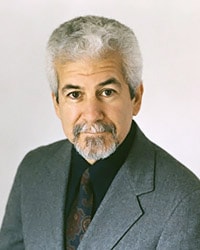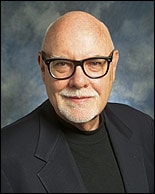Yamaha Music & Wellness Institute Begins Recreational Music Making Study For At-Risk Youth
 Barry Bittman, MD, Chief Executive Officer of the Yamaha Music & Wellness Institute |
"Recreational Music Making is characterized by enjoyable, accessible and fulfilling group music-based activities that unite people of all ages regardless of their challenges, backgrounds, ethnicity or prior experience," states Karl Bruhn, acknowledged "Father of the Music Making and Wellness movement" and Board Chairman of YMWI. "The program at San Diego Center for Children has great potential to enable at-risk youth to improve quality of life. We are pleased to offer creative recreational music making opportunities that can help children discover better ways to cope with their challenges."
Each program session includes a multi-faceted array of enjoyable activities that foster a sense of teamwork and camaraderie. Without the need for prior musical experience, children are invited to interact in a non-pressured multi-step protocol. Based in part upon the Remo HealthRHYTHMS group empowerment drumming program, this new program includes key strategies for breaking down barriers and promoting meaningful communication among adolescents.
"We set forth to specifically design a program that focuses on personal strengths by progressively encouraging and conditioning a sense of acceptance and camaraderie. Our goal is to catalyze meaningful discussions, heightened awareness and positive transformation through creative musical expression," noted Bittman. "This project serves as a direct extension of our research investigation currently underway at Bethesda Children's Home in Meadville, PA.

Karl Bruhn is the acknowledged founder of the Music and Wellness movement. |
Sundiata Kata, Music Program Director for the San Diego Center for Children since 1969 notes that drum circles have changed the lives of many disadvantaged children. "It creates a safe, non-threatening space, allowing youngsters to express their feelings without the fear of being judged. Through many years working with the Center's most troubled youth, I personally believe that music has benefits that go far beyond verbal expression in allowing individuals to tap into their own ability for self-healing."
The study is a direct extension of research performed by neurologist Barry Bittman, MD of the Mind-Body Wellness Center in Meadville, Pa. Dr. Bittman has published numerous studies including groundbreaking research on how playing a musical instrument reduces the impact of stress on the biological level by reversing DNA switches. The program is funded by NAMM, the International Music Products Association.
For more information, contact The San Diego Center for Children, 3002 Armstrong Street, San Diego, Calif. 92111; tel. 858-277-9550; http://www.centerforchildren.org; or the Yamaha Music & Wellness Institute, 18201 Conneaut Lake Road, Meadville, Pa. 16335; tel. (814) 333-5061; http://www.yamahainstitute.org.
